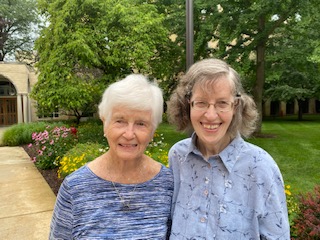Attentive Pedagogy: Essays on Simone Weil’s “Reflections on the Good Use of School Studies with a View to the Love of God”
Kathryn LawsonA brigade of critical ethical thought for E. Jane Doering, “the desire for light produces the light” (227).
The international community of Simone Weil scholars is a group of academics and thinkers concerned with ethics, duty, attention, political social justice, and what might be called a hope beyond possibility or a profound expectation even in the face of staggering nihilism. This love is neither romantic nor sentimental. It is not even kind-hearted. It is a fierce devotion to knowledge, ethics, and God. From various departments in universities, colleges, high schools, and other places across the world, Weil scholars, to one degree or another, cannot ignore Weil’s continual reminders that philosophy is meant to advance ethical action. In no uncertain terms, Weil theorizes and then tests her ideas through her social political works. Weil’s worldly actions are at times bold and daring, such as her fantastical work in the Spanish resistance, her time working in abhorrent conditions in a French factory, or her unrealized scheme to parachute into the front lines of World War II with a brigade of nurses. Notwithstanding these more sensational actions, the majority of Weil’s ethical acts were far less romantic or fabulous and instead were bound up in the day-to-day actions of her own teaching.
A Unique Pedagogy
Weil’s essay “Reflections on the Good Use of School Studies with a View to the Love of God,” marks Weil’s attempt to share her unique pedagogy and offers Weil scholars something of a map to an epistemic buried treasure. Weil herself uses such language to describe the fruits of attention as “a treasure infinitely more precious than any academic progress” (228) and as “a pearl which to buy is worth selling all one’s goods, keeping nothing for oneself” (232).
Further, Weil argues that education undertaken in this way is “a path to saintliness” (228), and in Platonic terms, the desire to learn in this way is “the only force capable of making the soul ascend” (229). Through teaching attentive studies the educator not only offers the student tools for the cultivation of virtuous intellectual habits, but in so doing forms the basis for that student’s own ethical actions in the world. The ethical act is three-fold in this case: (i) The teacher refines her own attention, (ii) she cultivates the attention of the student, and (iii) thus allows for the possibility of ethical actions both for herself and her student — from self, to other, to action. The souls of teacher and student move upward in a Platonic return toward the Good or the light of the sun, and there they recognize a responsibility to the others who remain in darkness, their neighbors. For Weil, we do not leave the famous Platonic cave but rather deepen our understanding of the cave through attentive love and divine light or grace.
In this brief essay written in Marseille in April of 1942, Weil shares what is at stake in teaching and education. She offers her readers, particularly those who teach and those who are students, her unique pedagogy. Moreover, this essay offers an awe-inspiring defense of the importance of the liberal arts in forming ourselves as ethical people and in so doing, demanding actions toward an ethical social political community. This essay, then, contains no less than the keys to the kingdom.
E. Jane Doering

With the continual threat of humanities departments shuttering their doors, the push to educate online, the pressure to monetize humanities degrees by making them career-oriented, and the staggering lack of attentive reflection both inside and outside of classrooms, Weil’s pedagogy is vital for our own times, and this would be reason enough to turn to this incredible essay.
The true push to think through these ideas, however, was the passing of Dr. E. Jane Doering (1933-2024), a scholar who embodied the tenets of Weilian attention and education. Jane was an educator through and through, teaching at high schools, universities, exchange programs, and continuing education, and she still found the time to mentor and work with young Weil scholars at every opportunity literally up to her final day, during which she sat on a panel for a new book on Weil and ecological ethics. She was a champion of Weil’s work and of the people behind that work and she was as fierce as she was generous in her defense of Weilian thought. During that panel, Scott Ritner (AWS president) referred to Jane as the heart of the American Weil Society and one would be hard pressed to disagree with this statement.

With a fierce intellectual drive, and a gentle humility, Jane served the life of the mind with an attention to social political oppression. She brought together the English and French speaking Weil communities, and she did not shy away from doing the thankless work of organizing if it meant she was helping out another person or the Weil community. I imagine many people reading this will have their own examples of Jane’s Weilian pedagogy and how it touched their lives. Certainly, her books and articles on Weil have made a lasting contribution to our understanding of this great thinker. Weil explains that “the desire for light produces the light” (227) and this was evident in Jane’s sparkle, in her intellectual curiosity, and her willingness and desire to share that light.
Six Essays
This special series includes six brief essays on Weil’s “Reflections on the Good Use of School Studies with a View to the Love of God” and an outline of the essay’s historical context by seven scholars, each of whom was touched by Jane in their own way and agreed to contribute with excitement both for Weil’s extraordinary and provocative pedagogy and for their own experiences of that pedagogy in action through the person of Dr. E. Jane Doering.
Following a succinct outline of the historical context and content of Weil’s essay by Ronald K.L Collins, the first essay on “Attention, Availability, and the Reading of Books,” is from Eric O. Springsted. Drawing on Levy and Baraba’s translation of “disponsible” as “available” rather than Craufurd’s “detached,” Springsted explores what it may mean to apply an attention of availability to reading for students and teachers. Springsted argues that a Weilian reading requires creative and generous engagement with a text and its author.
In the second essay, Robert Chenavier extols “The Virtues of Waiting” in a Weilian pedagogy. According to Chenavier, Weil argues that one should not seek the truth but patiently await its arrival. Such a task requires that which is beyond our control but also relies upon self-formation and orientation towards the truth. (This essay was translated by Eric O. Springsted.)
With “From Desiring to Inquiring,” Michela Dianetti and Lucy Elvis look at a practical application of Weil’s attention through empowering people (particularly children) to see themselves as members of a community of philosophical inquiry. Drawing on tenets of the “philosophy for Children” (P4C) movement, they argue that communal dialogue allows for students to experience Weilian-style pedagogy in action.
In “Slowness and Delight,” Cynthia Wallace offers insight into her own application of Weilian pedagogy in the first-year university classroom. In Wallace’s attempts to navigate the benefits and pitfalls of teaching attention, she reflects on the staggering gift of truly attending to other people.
Taking the “low road” of Weil’s attention, the penultimate essay by Ronald K.L. Collins explores the secondary benefits of the liberal arts and how one can begin to apply a Weilian pedagogy in a deeply technological and commodified educational system. While Collins does not discount the higher ethical/ divine intelligence that Weil suggests as the primary goal of school studies, he entreats the reader not to miss the importance, joy, and self-exploration of a liberal arts education in and for itself.
Finally, returning to the “high road” of Weil’s school studies, Sophie Bourgault offers the final essay in this series. In her engagement with Weil’s attention, Bourgault emphasizes the cultivation of humility and brings Weil into conversation with Al-Saji’s ethical hesitation. Bourgault argues that for both Weil and Al-Saji, ethical action toward others requires self-reflection and suspension of immediate judgment.
These six essays offer a diverse glimpse into the vast layers of possibilities within Weil’s succinct, rich essay on school studies and it is our intention that they will be a light to all those who wish to bring attention and critical openness to a world so lacking in these vital virtues. There can be no greater tribute to our beloved friend, Jane Doering, than to continue this work.
(By way of “value added,” we include Ron Collins’ “An Organizational Guide to Simone Weil’s ‘Reflections on the Good Use of School Studies with a View to the Love of God’.”)
Bio Statement

Kathryn Lawson is a lecturer in philosophy and humanities at the University of King’s College in Halifax, Canada. She has a PhD from Queen’s University (2022) and her book Decreation for the Anthropocene was published with Routledge’s Environmental Ethics series (2024). She acted as co-editor and contributor to a collection on the political philosophy of Weil and Hannah Arendt with Bloomsbury (2024) and she has published a number of chapters and peer reviewed articles on thinkers including Weil, Arendt, Jean Luc Marion, Edith Stein, Richard Kearney, and Hans-Georg Gadamer.
Source & Translation Used
Unless otherwise noted, the translated quotes used in this introduction and the following essays are taken from Simone Weil, Basic Writings, ed. & trans. by D.K. Levy & Marina Barabas (New York: Routledge, 2024).
5 Recommendations
